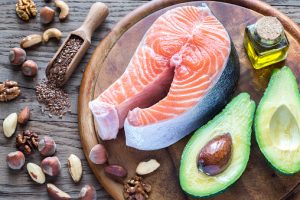 It has always been emphasized that diet is a vital component of healthy bodies and that the type and quality of food plays a big part. There is no evidence supporting this notion, as a team of researchers from the University of Texas Health Science Center at Houston’s McGovern Medical School has found that the types of fats we consume can affect stem cells.
It has always been emphasized that diet is a vital component of healthy bodies and that the type and quality of food plays a big part. There is no evidence supporting this notion, as a team of researchers from the University of Texas Health Science Center at Houston’s McGovern Medical School has found that the types of fats we consume can affect stem cells.
The transformation of cells
Stem cells are essentially undifferentiated biological cells that haven’t yet been specialized for a specific purpose. The cells of your heart, stomach, or even brain have all started from stem cells, and it wasn’t until some point during human development that biological processes channel them to permanently become one type of cell.
Advertisement
The study in question investigated how particular types of fat that we eat may determine whether stem cells develop into bone cells or fat cells. Specifically, mesenchymal stem cells, a common type of adult stem cell known for growing into many types of connective tissue including fat, bone, and cartilage, was the basis for this investigation.
The researchers found that the transformation of these stem cells into mature tissue could be influenced by dietary fat. This is the deciding factor for which type of cell they become.
“The fats that we consume, such as cholesterol, unsaturated fats, and fish oil, become robustly incorporated into the membrane of our cells and dramatically change the composition and function of those membranes,” said Ilya Levental, a Cancer Prevention & Research Institute of Texas (CPRIT) Scholar.
Fats we eat can change cell wall composition
When looking closely at the lipid content of mesenchymal stem cells as they transformed into bone or fat cells, the team discovered that bone cells had unique lipids that were high in omega-3 polyunsaturated fat. This is a common dietary fatty acid, also called DHA, and is abundantly found in fish oil.
Advertisement
It was also found that adding fish oil fats to mesenchymal stem cells caused them to transform into bone-forming cells (osteoblasts) and non fat-storing cells (adipocytes).
“This fundamental research helps explain why fish oil benefits people with osteoporosis, a bone-weakening disorder affecting an estimated 200 million women worldwide. More broadly, it may provide insight into the many connections between dietary fats and a variety of clinical outcomes, including healthy aging and heart disease,” Levental said.
Related: Swapping unhealthy dietary fats with healthy ones reduces cholesterol
